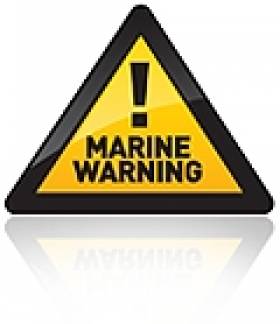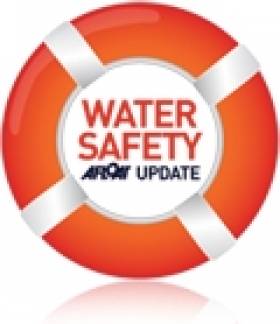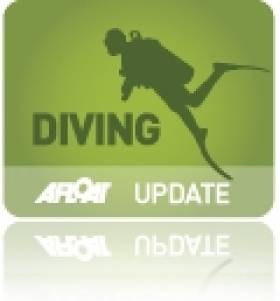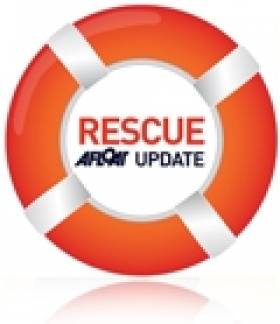Displaying items by tag: drowning
#MCIB - The decision to set out in poor weather, coupled with limited safety instruction, led to the tragic death of a Romanian angler on Lough Mask last summer, according to a report by the Marine Casualty Investigation Board (MCIB).
Mircea Ungur drowned after the angling boat he was in capsized in choppy waters brought on by squalling Force 8 winds on the afternoon of 8 May 2011.
Ungur had a tracheostomy tube in his throat resulting from a previous battle against throat cancer, and drowned after taking in water through this tube, the MCIB concluded. It was also found that most of his companions and the guide knew nothing about the tube.
At the time of the incident, Ungur had been on an angling holiday in Co Mayo with five colleagues accompanied by a fishing guide. On the morning of 8 May the group set out from Cappaduff in Tourmakeady on two boats, following a brief discussion about fishing and safe departure from the pier.
Winds were already reaching Force 4-6 when the group departed and sought a sheltered area of the lough to fish. After lunch winds had picked up to Force 8 and the guide signalled for a return to Tourmakeady.
At around 1.5km from the pier at Cappaduff, a wave swamped the leading boat that contained Ungur, a companion and the guide. All three on board, who were wearing buoyancy aids, went into the water.
Ungur was the first taken on board the other boat after some 10 minutes in the water. He was not moving or communicating with the others, and CPR was not administered until the boat reached the shore 20 minutes later. Ungur was pronouced dead just before 3pm.
The report concluded that the group had departed despite reservations among them about the poor weather, which had been correctly forecast that day. There was also little discussion with the anglers about their level of boating experience, the weather, or any disabilities that would affect their safety on the water.
The MCIB recommended that a full safety briefing should be given to all those hiring angling boats. It also urged the enforcement of safety regulations and certification for recreational water craft.
The full report is available to download as a PDF from the MCIB website HERE.
Epilepsy, Lack of Lifejacket Big Factors in Death of Dublin Boatman - MCIB
#MCIB - The death by drowning of a South Dublin boatman may have been avoided had he been wearing a lifejacket or buoyancy aid, according to investigators.
The report by the Marine Casualty Investigation Board (MCIB) into the death of Aidan Fennell off Dalkey Island on 12 October 2010 found that an epileptic episode could have caused him to fall overboard from his rowboat and become disorientated once in the water.
Fennell, 43, was considered a competent boatman and a strong swimmer used to cold water, though was prone to seizures where he could not control his muscles and lost sense with reality, on occasion becoming unconscious.
On the afternoon of 12 October last year Fennell had launched his boat from Coliemore Harbour in fair conditions, intending to ferry a German family to Dalkey Island. When they pulled out of the trip, Fennell decided to row to the island on his own, with no flotation devices on board.
He was last seen by friend Kevin O'Farrell at 2.50pm. Around half an hour later, O'Farrell became concerned as to Fennell's whereabouts when he had been out of sight for some time.
After notifying the Irish Coast Guard, the Dun Laoghaire lifeboat and coastguard helicopter Rescue 116 were dispatched to search the area. Fennell's boat was located before 4pm washed on the rocks at the southeast end of Dalkey Island, and his body was found in the water close by some 10 minutes later.
No injuries were found on Fennell's body, suggesting that he went into the water before his boat washed up on the rocks.
The report concluded that if he had fallen overboard in normal conditions "it is considered likely that he could have swum to his boat, or clung on to the oars.
"However, if he had suffered an epileptic episode... he would have had great difficulty in staying afloat, in particular without having the buoyancy assistance of a life jacket."
The full report is available to download as a PDF from the MCIB website HERE.
MCIB Highlights Danger of Fishing Without Safety Gear
The Marine Casualty Investigation Board (MCIB) has called on the Government to continue highlighting the dangers of operating boats without adequate safety equipment, following its report into the death of a Wexford fisherman last year.
Michael O'Connor drowned after going overboard from his small open boat while fishing alone at Cullenstown, Co Wexford in the early hours of 7 September 2010.
The local Irish Coast Guard unit initiated a search when he did not return as expected later in the morning. His body was subsequently located next to his upturned boat around 9am.
It is not known to investigators how O'Connor came to be in the water when the incident occurred. He was found to be wearing a lifejacket, but no flares, VHF radio or other safety equipment were found on board his vessel.
The boat itself was also not a registered fishing vessel, and was unsuitable for carrying the fishing gear O'Connor had been using.
The report stated: "The combination of boat size, darkness, weather conditions, tidal flow, fishing equipment and the absence of safety equipment other than a lifejacket combined to increase the danger and reduce the chance of survival."
The full report is available to download as a PDF from the MCIB website HERE.
Inquest Hears Man Drowned After Dinghy Capsized
Two children looked on in horror as their father tried to save a drowning man, an inquest has heard in Belfast.
As the Belfast Telegraph reports, the family and a friend were thrown into Strangford Lough when their dinghy capsized some 500 yards from Newtownards Sailing Club on 12 June last year.
David Allen managed to pull his friend Ken Dorman to safety and performed mouth-to-mouth resuscitation while still in the water.
But Dorman, 51, had been shocked by the cold water and swallowed some, which caused him to drown, ruled coroner John Leckey.
Allen described his friend as strong and a good swimmer, and told of his shock when he saw him floating on his back unmoving after he was unable to inflate his buoyancy aid.
"He did not make any attempt to move at all and that is what I struggle with," said Allen. "I think there was something stopping him from doing anything."
The Belfast Telegraph has more on the story HERE.
Families Disagree with MCIB Report on F/V Jennifer
The Irish Examiner reports that the families of two fisherman who drowned off Malin Head last November disagree with the findings of the official investigation into the tragedy.
Eddie Doherty, 65, and his nephew Robert McLaughlin, 41, died after their small fishing boat F/V Jennifer capsized and sank off Glengad on 1 November last year.
The official report released last week by the Marine Casualty Investigation Board (MCIB) found that a combination of high winds in the area and unstable weight on the boat due to the crab pots it was carrying most likely caused the vessel to list to an angle from which it could not be recovered.
But Eddie Doherty's widow said she disagreed with this conclusion.
"With Eddie’s experience and his regard for safety the load would have been spread evenly over the deck of the boat and therefore this would not have had an adverse affect on the stability of the boat," said Marian Doherty.
The full MCIB report is available to read in full HERE.
Gardaí Renew Appeal for Witnesses to Liffey Death
Dublin Gardaí are still appealing for information on the drowing of a Co Tyrone man in the River Liffey last weekend.
RTÉ News reports that Aiden Mullen, 35, had been socialising in the city after the All-Ireland Football Championship match at Croke Park on Saturday 30 July.
At around 3.20am last Sunday morning, Mullen was waiting with his brother and friends on Burgh Quay for taxis home when he broke away from the group and approached the river wall.
He was last seen falling into the water by his brother, who jumped in to assist him. Both men, as well as three passers-by who entered the water to help, got into difficulty.
Dublin Fire Brigade rescued four from the river, but Mullen's body was discovered shortly after.
Gardaí say a number of witnesses have already come forward, but they would like anyone else with information to contact them at Pearse Street Garda Station.
In Tramore today, Council noted with some degree of satisfaction that the total number of drownings in Ireland in 2010 was 112, the lowest figure since 1952 when 104 people drowned. The highest figure recorded in any one year to date is 229 in 1994.
On average in Ireland there were 150 drownings each year in the decade to 2010, during which Irish Water Safety developed a range of educational and promotional campaigns to raise awareness about water safety which obviously is attaining a desired goal.
Speaking about the reduction in drownings, Minister for the Environment, Community and Local Government - Phil Hogan, T.D said: "112 lives lost to drowning in 2010 represents a 23% reduction compared to 2009 when 145 drowned. This reduction is a positive indication that the monies invested by Government, local authorities, corporate partnerships and the work of voluntary members promoting water safety nationwide are paying dividends in the saving of lives and the prevention of avoidable tragedies that devastate families and communities. I urge everyone to respect the dangers and to stay vigilant at all times. To stay aware is to stay alive." Continuing, Minister Hogan congratulated the Council and the members of IWS for their contribution in achieving a reduction in the numbers drowned.
Commenting on the decrease, the Chairman of IWS, Frank Nolan said: "We have ended a decade in which we can report that drownings in Ireland in 2010 were at their lowest for 58 years, reason enough to be confident that the work of Irish Water Safety and our partners in the public and private sector is having the desired outcome - more people enjoying our wonderful aquatic facilities more safely."
"That said, complacency is not an option for anybody as the statistics frighteningly reveal." continued Nolan. "Although 85% of accidental drownings were male, the adage 'boys will be boys' is alarmingly muted by the tragic fact that the vast majority of accidental drownings were not boys at all but grown men - 48% aged 45-65, compared to 15% aged under 24."
"I appeal to all adults to make themselves more aware of the dangers in, on and around water." he added, "It only takes seconds for tragedy to strike and this can so easily be avoided if people take responsibility for their own safety by learning about the hazards in advance of any trip to our wonderful waterways. One such step is to read Irish Water Safety's guidelines at iws.ie."
Irish Water Safety's statistical analysis is available at www.iws.ie. Excerpts from some of the graphs reveal that*:
In the 1970's, we averaged 91 accidental drownings each year. We ended the 00's averaging 55. Last year the figure dropped to 33.
In the 1980's we averaged 207 drownings each year. We ended the 00's averaging 150. Last year the figure dropped to 112.
In 2010:
48% of accidental drownings were aged 46-65
15% of accidental drownings were aged under 24
27% of all drownings were aged 55-64
67% of all drownings were male
85% of accidental drownings were male
56% of female drownings were suicide
40% of male drownings were suicide
*Note that the figure for drownings in which the cause (accident/suicide/assault) remains undetermined for 2010 is 25. 2010 drownings: 112 (53 accident, 68 suicide, 25 undetermined).
Boy Drowns in Liffey, Diver Treated for Bends
Gardaí have confirmed that a 14-year-old boy drowned in the River Liffey near Clane, Co Kildare on Saturday.
According to The Irish Times, it is believed the accident occurred while the teen was playing in the river with friends. His body was removed to Naas hospital.
Elsewhere, RTÉ News reports that a diver is being treated for the bends after getting into difficulty in the sea near Kilkee, Co Clare on Sunday.
The man was airlifted by the Shannon coast guard to Galway's University Hospital after being retrieved by colleagues.
Irish Victim Named in Australia Drowning
An Irishwoman who drowned while scuba diving in the Whitsunday Islands in Australia has been named, the Irish Examiner reports.
Elaine Morrow, 23, from Ballintra in Co Donegal, had been on a three-day beginners diving course in the island chain, off the coast of Queensland, when she was separated from her group on Monday.
It is believed the woman had been in Australia for almost a year on a working holiday visa.
The Department of Foreign Affairs has contacted the family and offered consular assistance.
Lifejackets 'Must Be Worn', Inquest Hears
The coroner for Galway West has urged all boat-users to wear lifejackets and put safety first on the water.
Dr Ciarán McLaughlin spoke at the inquest into the death of experienced sailor Johnny Mac Donncha, who drowned after his Galway hooker was knocked over by a gust of wind, The Irish Times reports.
Mac Donncha, 67, was not wearing a lifejacket at the time of the accident on 5 September 2009. Despite the best efforts of rescuers in a neighbouring boat, he could not be revived.
The investigation into the incident found that if he had been wearing the lifejacket that was on board for him, "it would have increased his chances of survival".
The inquest also found that there was no VHF radio on board either vessel, the presence of which would have attracted helicopter assistance "faster and with greater ease".
































